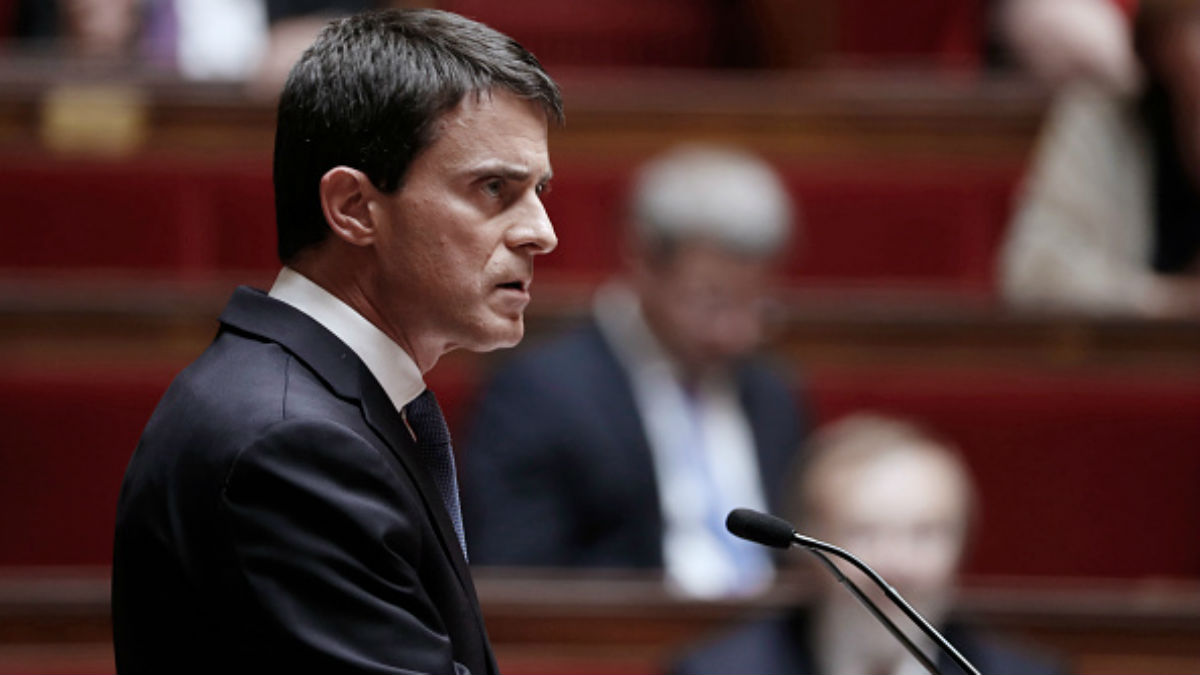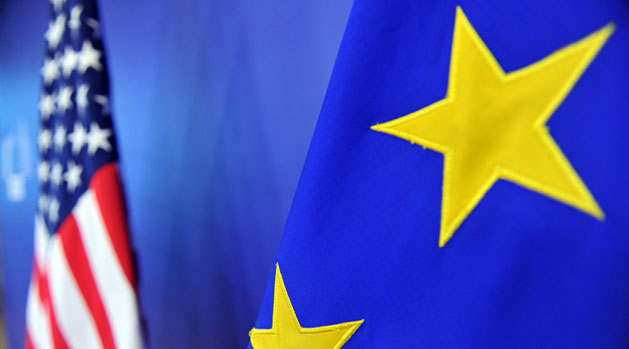Has France put an end to TTIP trade deal?
Prime Minister Manuel Valls tells governing Socialist Party arrangement goes against the EU's interests

A free daily email with the biggest news stories of the day – and the best features from TheWeek.com
You are now subscribed
Your newsletter sign-up was successful
With the Brexit vote dominating press coverage over the weekend, a hugely significant but little publicised intervention by French Prime Minister Manuel Valls looks set to scupper the controversial US-EU Transatlantic Trade and Investment Partnership (TTIP).
What is the TTIP?
It's a free trade deal that aims to promote trade and multilateral economic growth between the US and the EU. It has been under negotiation for almost two years.
The Week
Escape your echo chamber. Get the facts behind the news, plus analysis from multiple perspectives.

Sign up for The Week's Free Newsletters
From our morning news briefing to a weekly Good News Newsletter, get the best of The Week delivered directly to your inbox.
From our morning news briefing to a weekly Good News Newsletter, get the best of The Week delivered directly to your inbox.
Backers say TTIP will help small businesses open up markets, make customs processes easier and reduce trade tariffs on products.
However, critics argue it will primarily benefit big corporations, giving them rights trumping those of national governments, and have negative effects on the environment and agriculture.
What has happened?
Valls has dismissed the possibility of an agreement, saying it goes against the interests of the EU.
A free daily email with the biggest news stories of the day – and the best features from TheWeek.com
"No free trade agreement should be concluded if it does not respect EU interests. Europe should be firm. France will be vigilant about this," he told members of the governing Socialist Party on Sunday. "I can tell you frankly, there cannot be a transatlantic treaty agreement. This agreement is not on track."
Why do the French oppose it?
The French government is already under fire for trying to loosen labour laws and Valls pointed to more deregulation in TTIP that would hurt key industries, says RT. In particular, he highlighted the scrapping of milk quotas, which could damage the country's important dairy sector.
What was the UK's position?
The government was strongly in favour of a deal to open up more trade with the US, but it was not without opposition. Labour leader Jeremy Corbyn repeatedly spoke out against the agreement during his much-criticised EU referendum campaign.
Meanwhile, in May, David Cameron was forced to accept an amendment to the Queen's Speech to avoid a humiliating defeat in the Commons after 30 Eurosceptic Tory rebels demanded a specific clause to protect the NHS from being forcibly opened to the private sector in trade arrangements struck as part of TTIP.
In fact, TTIP, in a similar way to a separate deal being arranged with Canada, contains a provision that health services are excluded from the competition provisions.
Has Brexit affected TTIP?
Britain's looming exit from the EU is a "huge setback" for negotiations "that were already stalled by deeply entrenched differences and growing anti-trade sentiment on both sides of the Atlantic", says Reuters.
It may well be that the deal is dead in the water now that the UK, one of the most vocal supporters of TTIP, is no longer at the negotiating table and opposition in France and Germany is growing.
In any case, with Brussels likely to be preoccupied with Brexit negotiations for the short to medium term, hopes that the trade deal could be signed off before President Barack Obama leaves office next January appear to have been dashed.
-
 Jeff Bezos: cutting the legs off The Washington Post
Jeff Bezos: cutting the legs off The Washington PostIn the Spotlight A stalwart of American journalism is a shadow of itself after swingeing cuts by its billionaire owner
-
 5 blacked out cartoons about the Epstein file redactions
5 blacked out cartoons about the Epstein file redactionsCartoons Artists take on hidden identities, a censored presidential seal, and more
-
 How Democrats are turning DOJ lemons into partisan lemonade
How Democrats are turning DOJ lemons into partisan lemonadeTODAY’S BIG QUESTION As the Trump administration continues to try — and fail — at indicting its political enemies, Democratic lawmakers have begun seizing the moment for themselves
-
 EU-US TTIP trade deal 'effectively dead'
EU-US TTIP trade deal 'effectively dead'Speed Read Brexiters say collapse of Transatlantic Trade and Investment Partnership could benefit the UK
-
 What is TTIP and why is it causing controversy?
What is TTIP and why is it causing controversy?In Depth The Transatlantic Trade and Investment Partnership aims to create the world's biggest free trade zone